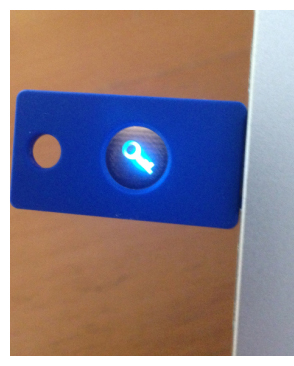The COVID-19 epidemic has brought a wave of email phishing attacks that try to trick
According to interviews with several sources, this hybrid phishing gang has a remarkably high success rate, and operates primarily through paid requests or “bounties,” where customers seeking access to specific companies or accounts can hire them to target employees working remotely
And over the past six months, the criminals responsible have created dozens if not hundreds of phishing pages targeting some of the world’s biggest corporations. For now at least, they appear to be focusing primarily on companies in the financial, telecommunications and social
“For a number of reasons, this kind of attack is really effective,” said
Target: New hires
A typical engagement begins with a series of phone calls to employees working remotely at a targeted organization. The phishers will explain that they’re calling from the employer’s
![The employee phishing page bofaticket[.]com.](/blog/voice-phishers-targeting-corporate-vpns/bofaticket.jpg)
The goal is to convince the target either to divulge their credentials over the phone or to input them manually at a website set up by the attackers that mimics the organization’s corporate email or
Zack Allen is director of threat intelligence for ZeroFOXM, a
Allen said the attackers tend to focus on phishing new hires at targeted companies, and will often pose as new employees themselves working in the company’s
“They’ll say ‘Hey, I’m new to the company, but you can check me out on LinkedIn’ or Microsoft Teams or Slack, or whatever platform the company uses for internal communications,” Allen said. “There tends to be a lot of pretext in these conversations around the communications and
Spear Vishing
The domains used for these pages often invoke the company’s name, followed or preceded by hyphenated terms such as “vpn,” “ticket,” “employee,” or “portal.” The phishing sites also may include working links to the organization’s other internal online resources to make the scheme seem more believable if a target starts hovering over links on
Allen said a typical voice phishing or “vishing” attack by this group involves at least two perpetrators: One who is social engineering the target over the phone, and another
Time is of the essence in these attacks because many companies that rely on VPNs for remote employee access also require employees to supply some type of
But these vishers can easily sidestep that layer of protection, because their phishing pages simply request the
![A phishing page (helpdesk-att[.]com) targeting employees.](/blog/voice-phishers-targeting-corporate-vpns/attgl-768x536.jpg)
Allen said it matters little to the attackers if the first few social engineering attempts fail. Most targeted employees are working from home or can be reached on a mobile device. If at first the attackers don’t succeed, they simply try again with a
And with each passing attempt, the phishers can glean important details from employees about the target’s operations, such as
Thus, each unsuccessful attempt actually teaches the fraudsters how to refine their social engineering approach with the next mark within the targeted organization,
“These guys are calling companies over and over, trying to learn how the corporation works from the inside,”
Now you see it, now you don’t
All of the security researchers interviewed said the phishing gang is pseudonymously registering their domains at just a handful of domain registrars that accept bitcoin, and that the crooks typically create just one domain per
“They’ll do this because that way if one domain gets burned or taken down, they won’t lose the rest of their domains,”
More importantly, the attackers are careful to do nothing with the phishing domain until they are ready to initiate a vishing call to a potential victim. And when the attack or call is complete, they disable the website tied to
This is key because many domain registrars will only respond to external requests to take down a phishing website if the site is live at the time of the abuse complaint. This requirement can stymie efforts by companies like ZeroFOX that focus on identifying
“They’ll only boot up the website and have it respond at the time of the attack,” Allen said. “And it’s super frustrating because if you file an abuse ticket with the registrar and say, ‘Please take this domain away because we’re
![A phishing page (github-ticket[.]com) aimed at siphoning credentials for a target organization’s access to the software development platform Github.](/blog/voice-phishers-targeting-corporate-vpns/github-768x581.jpg)
School of hacks
Both Nixon and Allen said the object of these phishing attacks seems to be to gain access to as many internal company tools as possible, and to use those tools to seize control over digital assets that can quickly be turned into cash. Primarily, that includes any social media and email accounts, as well as associated financial instruments such as bank accounts and
Nixon said she and others in her research group believe the people behind these sophisticated vishing campaigns hail from a community of young men who have spent years learning how to social engineer employees at mobile phone companies and social media firms into giving up access to internal
Traditionally, the goal of these attacks has been gaining control over
On July 15, a number of
Nixon said it’s not clear whether any of the people involved in the Twitter compromise are associated with this vishing gang, but she noted that the group showed no signs of slacking off after federal authorities charged several people with taking part in the
“A lot of people just shut their brains off when they hear the latest big hack wasn’t done by hackers in
![A phishing page (vzw-employee[.]com) targeting employees of Verizon.](/blog/voice-phishers-targeting-corporate-vpns/vzw-employee.jpg)
Proper adult money-laundering
While it may seem amateurish or myopic for attackers who gain access to a
“These guys do intrusion work for hire, and will accept money for any purpose,” Nixon said. “This stuff can very quickly branch out to other purposes
For example, Allen said he suspects that once inside of a target company’s VPN, the attackers may try to add a new mobile device or phone number to the phished employee’s account as a way to generate additional
Nixon and Allen said the activities of this vishing gang have drawn the attention of
“What we see now is this group is really good on the intrusion part, and really weak on the cashout part,” Nixon said. “But they are learning how to maximize the gains from their activities. That’s going to require interactions with foreign gangs and learning how to do proper adult money laundering, and we’re already seeing signs that they’re growing up very
What can companies do?
Many companies now make security awareness and training an integral part of their operations. Some firms even periodically send test phishing messages to their employees to gauge their awareness levels, and then require employees who miss the mark to undergo
Such precautions, while important and potentially helpful, may do little to combat these

One multi-factor option — physical security keys — appears to be immune to these sophisticated scams. The most commonly used security keys are inexpensive
The allure of U2F devices for
In July 2018, Google disclosed that it had not had any of its
Probably the most popular maker of security keys is Yubico, which sells a basic U2F Yubikey for $20. It offers regular USB versions as well as those made for devices that require
Nixon said many companies will likely balk at the price tag associated with equipping each employee with a physical security key. But she said as long as most employees continue to work remotely, this is probably a wise investment given the scale and aggressiveness of these voice
“The truth is some companies are in a lot of pain right now, and they’re having to put out fires while attackers are setting new fires,” she said. “Fixing this problem is not going to be simple, easy or cheap. And there are risks involved if you somehow screw up a bunch of employees accessing the VPN. But apparently these threat actors really hate Yubikey

